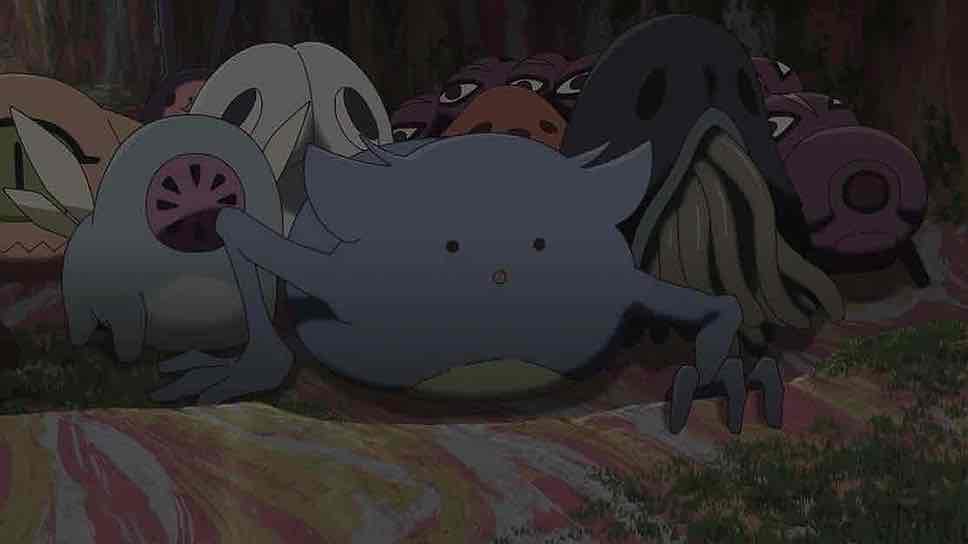 Made in Abyss is never easy to watch. It unsettles in a very powerful and visceral way. There aren’t all that many anime I would make that statement about. Or indeed, that the experience of watching them is truly unique. Kyousougiga comes to mind (wholly different vibe, obviously). Maybe Shin Sekai Yori. But beyond simply sharing the trait of uniqueness, comparison is pointless – by nature, the experience with each series is totally different. Among all the shows I find truly to be masterpieces, MiA is among the ones I “enjoy” the least, in the narrow definition of the word.
Made in Abyss is never easy to watch. It unsettles in a very powerful and visceral way. There aren’t all that many anime I would make that statement about. Or indeed, that the experience of watching them is truly unique. Kyousougiga comes to mind (wholly different vibe, obviously). Maybe Shin Sekai Yori. But beyond simply sharing the trait of uniqueness, comparison is pointless – by nature, the experience with each series is totally different. Among all the shows I find truly to be masterpieces, MiA is among the ones I “enjoy” the least, in the narrow definition of the word.
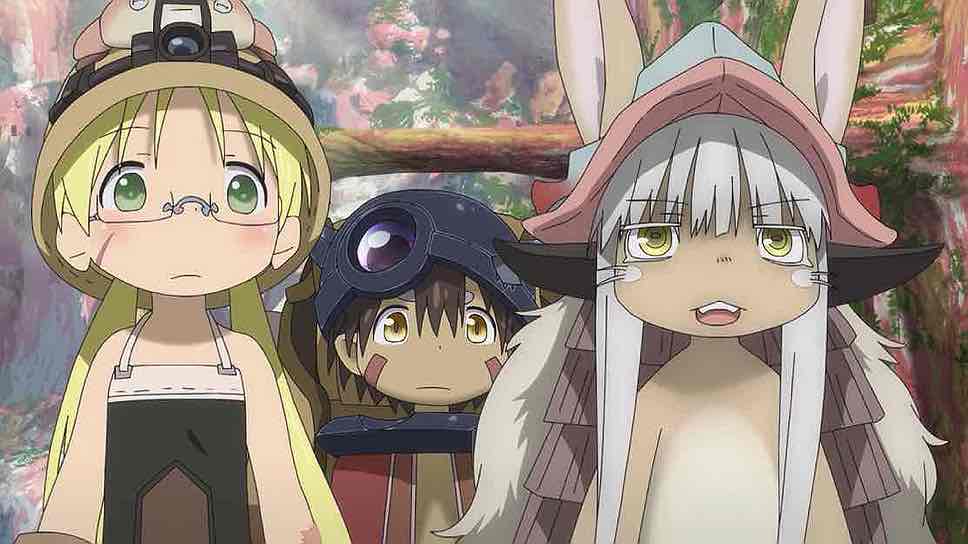 That’s not to say I don’t love it, though – I do. Indeed I think it’s better to say that I enjoy it on a different level and in a different way. The closest comparison I can make (and it’s one I’ve made before) is Hunter X Hunter – especially and most obviously the “Chimaera Ant” arc. Like Togashi, Tsukushi has an unerring sense for how to disturb an audience. And the complete lack of boundaries adds a great sense of danger – nothing seems out of bounds (though a few things obviously are for practical reasons).
That’s not to say I don’t love it, though – I do. Indeed I think it’s better to say that I enjoy it on a different level and in a different way. The closest comparison I can make (and it’s one I’ve made before) is Hunter X Hunter – especially and most obviously the “Chimaera Ant” arc. Like Togashi, Tsukushi has an unerring sense for how to disturb an audience. And the complete lack of boundaries adds a great sense of danger – nothing seems out of bounds (though a few things obviously are for practical reasons).
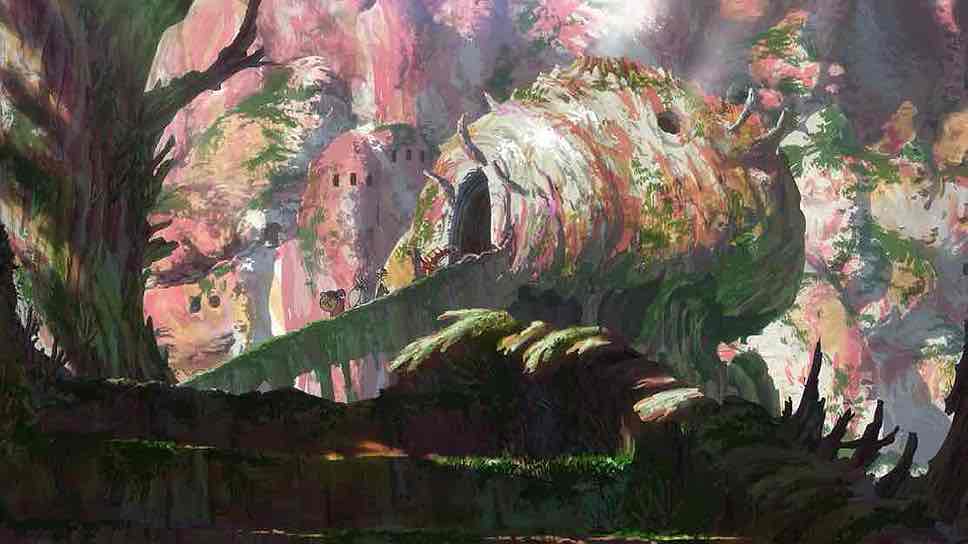 As good as the first two episodes of Retsujitsu no Ougankyou were, with this one the season really kicks into high gear. This was classic Made in Abyss, starting of course with the hors catégorie worldbuilding. The hollows in this village, starting with Majikaja, are utterly fascinating. I love Gotou Hiroki’s performance here – he gives Majikaja an incredible sense of “otherness” This is like so much in Made in Abyss – enchanting and disquieting at the same time. There’s a wonder to the place and these creatures, gorgeously brought to life by Kinema Citrus, but an underlying sense of wrongness that just won’t go away. We know more or less how this fantastical setting came to be, and that knowledge colors our elemental reaction to being there.
As good as the first two episodes of Retsujitsu no Ougankyou were, with this one the season really kicks into high gear. This was classic Made in Abyss, starting of course with the hors catégorie worldbuilding. The hollows in this village, starting with Majikaja, are utterly fascinating. I love Gotou Hiroki’s performance here – he gives Majikaja an incredible sense of “otherness” This is like so much in Made in Abyss – enchanting and disquieting at the same time. There’s a wonder to the place and these creatures, gorgeously brought to life by Kinema Citrus, but an underlying sense of wrongness that just won’t go away. We know more or less how this fantastical setting came to be, and that knowledge colors our elemental reaction to being there.
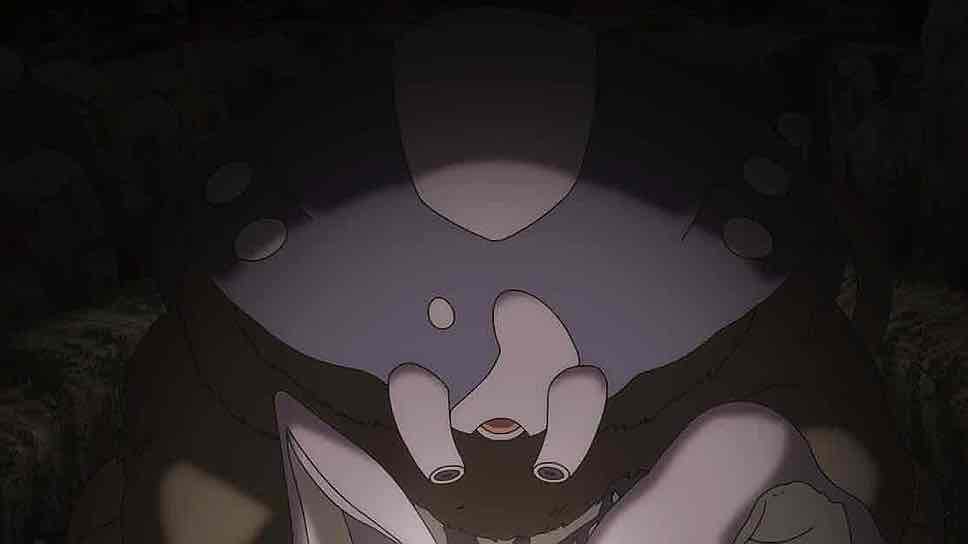 This question of “value” is central to the place, and it’s pretty metaphysical and hard to quantify. It starts with Prushka, who’s being chiseled away at but apparently (according to Riko) doesn’t mind. Majikaja explains that it’s because this is not her “true form” – and once shaped into it, her value will increase. But of course just what that means isn’t immediately clear. Riko obviously isn’t looking to sell, but in point of fact – as Riko will find out at the market soon enough – the most valuable thing around is Riko herself. Human children “have great value”, and Majikaja himself would like to get a piece of the action.
This question of “value” is central to the place, and it’s pretty metaphysical and hard to quantify. It starts with Prushka, who’s being chiseled away at but apparently (according to Riko) doesn’t mind. Majikaja explains that it’s because this is not her “true form” – and once shaped into it, her value will increase. But of course just what that means isn’t immediately clear. Riko obviously isn’t looking to sell, but in point of fact – as Riko will find out at the market soon enough – the most valuable thing around is Riko herself. Human children “have great value”, and Majikaja himself would like to get a piece of the action.
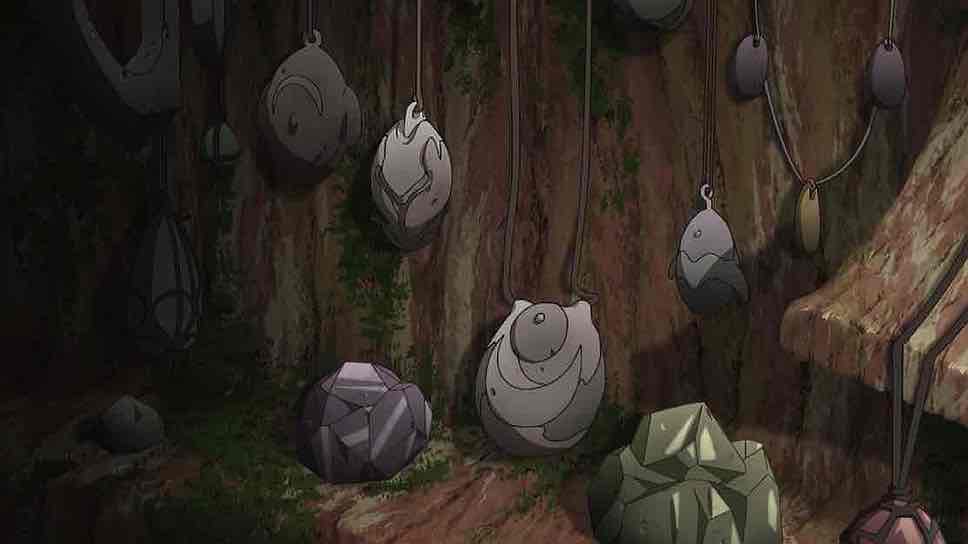 That market really is a wonder, in every sense. It’s fantastical, surreal, beautiful. But I knew at the gut level that something bad was going to happen here. First, Riko spots a letter written by her mother – but “look, don’t touch” is a cardinal rule at this bazaar. Majikaja suggests it can be bartered for, but the price is Riko herself – one she’s obviously not going to pay. Then Meinya disappears into the crowd of hollows, a seemingly innocent turn of events that quickly turns horrifying. One of the hollows (Ichiniose Kana) takes a seemingly innocent interest that soon turns gruesomely ugly.
That market really is a wonder, in every sense. It’s fantastical, surreal, beautiful. But I knew at the gut level that something bad was going to happen here. First, Riko spots a letter written by her mother – but “look, don’t touch” is a cardinal rule at this bazaar. Majikaja suggests it can be bartered for, but the price is Riko herself – one she’s obviously not going to pay. Then Meinya disappears into the crowd of hollows, a seemingly innocent turn of events that quickly turns horrifying. One of the hollows (Ichiniose Kana) takes a seemingly innocent interest that soon turns gruesomely ugly.
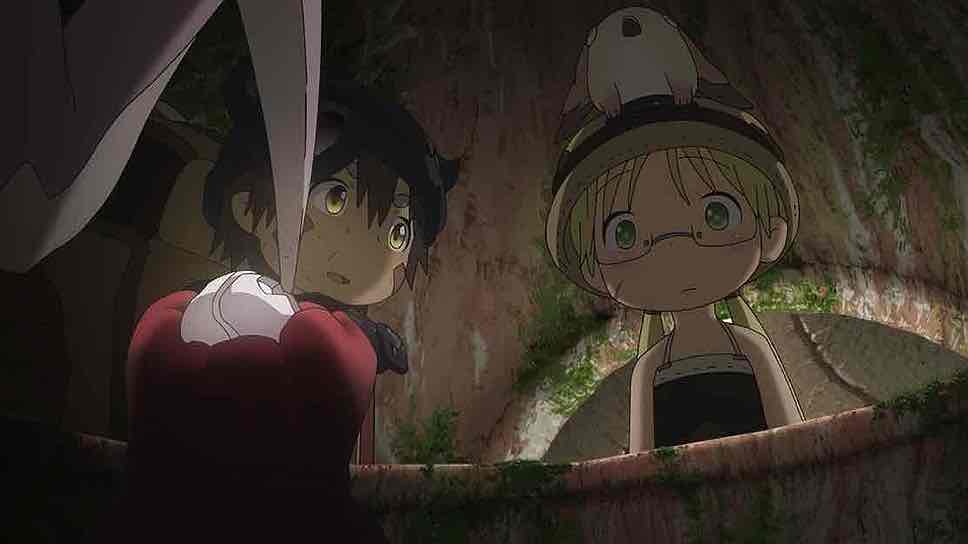 Of course, it’s clear that this strange creature doesn’t literally mean harm – indeed, it doesn’t have any sense of right or wrong in human terms (despite having been human itself at one time). But harm it does, though Nanachi is able to save Meinya’s life. This, however, is only the appetizer. The village itself is “protected” by this sense of value, and the creature now pay for the damage it’s caused to Meinya. Exactly how these seemingly arbitrary values are decided it isn’t clear, but this is literally a “pound of flesh” situation, and this “balancing” is truly terrible to see. Riko winds up with enough of the local currency to buy the trio room and board, but the means by which it was acquired taints it.
Of course, it’s clear that this strange creature doesn’t literally mean harm – indeed, it doesn’t have any sense of right or wrong in human terms (despite having been human itself at one time). But harm it does, though Nanachi is able to save Meinya’s life. This, however, is only the appetizer. The village itself is “protected” by this sense of value, and the creature now pay for the damage it’s caused to Meinya. Exactly how these seemingly arbitrary values are decided it isn’t clear, but this is literally a “pound of flesh” situation, and this “balancing” is truly terrible to see. Riko winds up with enough of the local currency to buy the trio room and board, but the means by which it was acquired taints it.
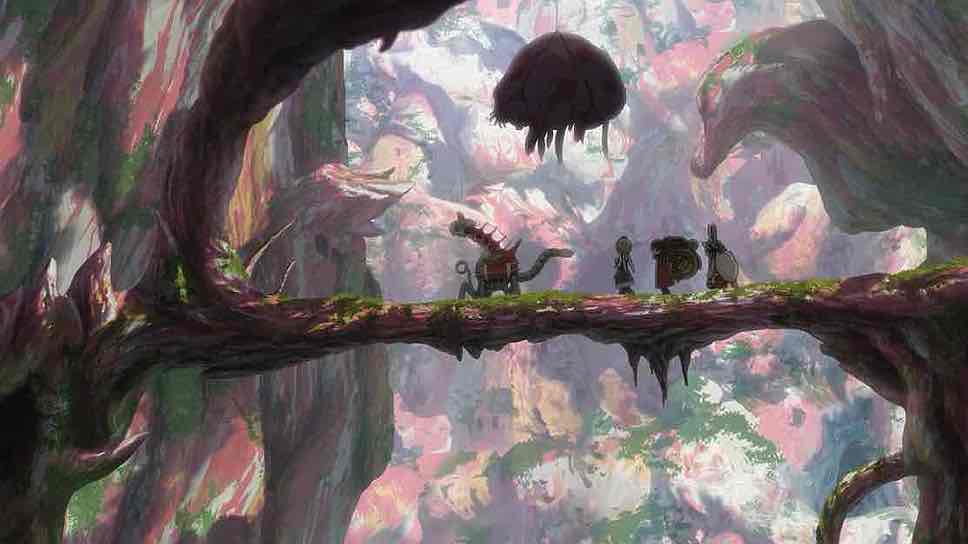 Riko’s “leap in and ask questions never” approach continues to get her into trouble – not least where her bowels are concerned. Her state of infirm leaves Reg and Nanachi to explore the village themselves the next day, and it’s clear something big is afoot. When the pair ask Majikaja he tells them that Faputa (shameless as ever, Tsukushi-sensei) is likely arriving in town. “Always angry” is how he describes her (and later doesn’t disagree when Nanachi calls her a “princess”). Reg goes off to reconnoiter while Nanachi drafts Majikaja to lead her to some food and water suitable for human consumption.
Riko’s “leap in and ask questions never” approach continues to get her into trouble – not least where her bowels are concerned. Her state of infirm leaves Reg and Nanachi to explore the village themselves the next day, and it’s clear something big is afoot. When the pair ask Majikaja he tells them that Faputa (shameless as ever, Tsukushi-sensei) is likely arriving in town. “Always angry” is how he describes her (and later doesn’t disagree when Nanachi calls her a “princess”). Reg goes off to reconnoiter while Nanachi drafts Majikaja to lead her to some food and water suitable for human consumption.
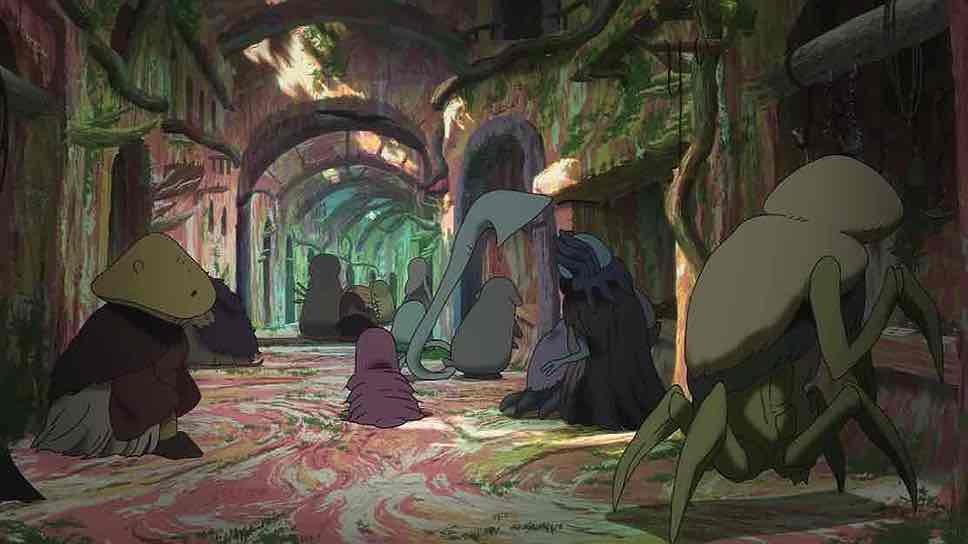 And so, the two threads of the season are finally tied together. Faputa is surely the silent village girl the Ganja group took with them on their journey, though she’s clearly changed a lot. As to what became of her comrades any speculation at this point would be just that, but it certainly isn’t impossible that they’re among the hollows in the village – indeed, that explanation fits quite well with what we already know. Past and present clearly converge in the Golden City, and once the truth of just how is revealed it seems certain to be unsettling and probably tragic.
And so, the two threads of the season are finally tied together. Faputa is surely the silent village girl the Ganja group took with them on their journey, though she’s clearly changed a lot. As to what became of her comrades any speculation at this point would be just that, but it certainly isn’t impossible that they’re among the hollows in the village – indeed, that explanation fits quite well with what we already know. Past and present clearly converge in the Golden City, and once the truth of just how is revealed it seems certain to be unsettling and probably tragic.


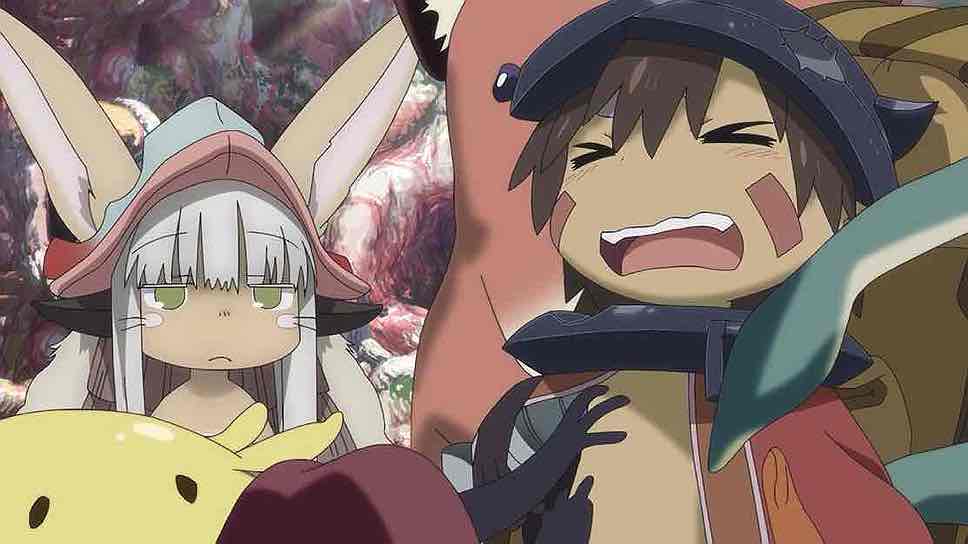
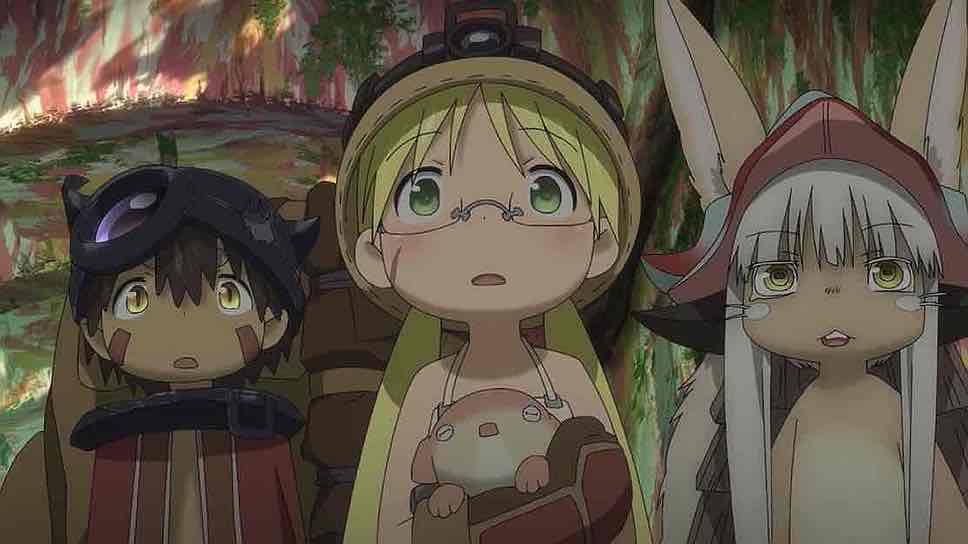
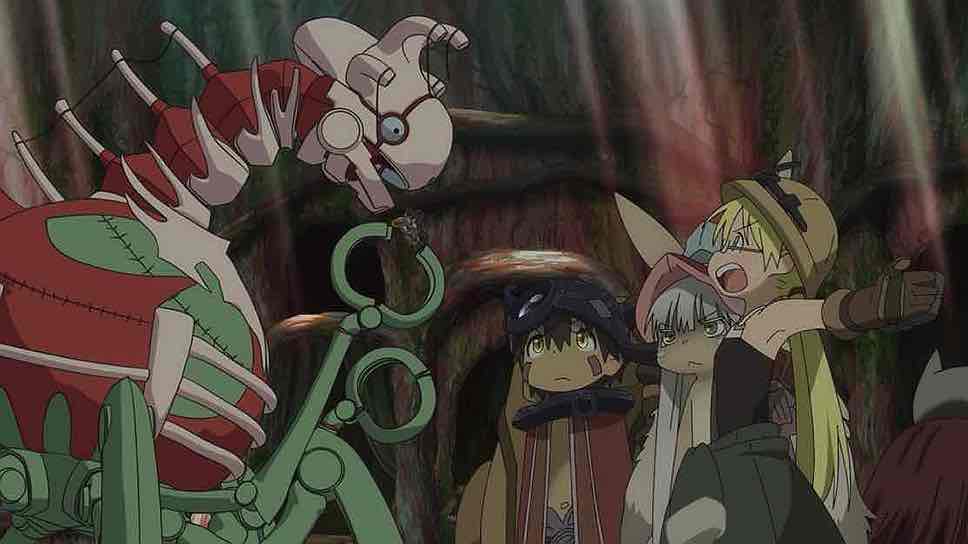
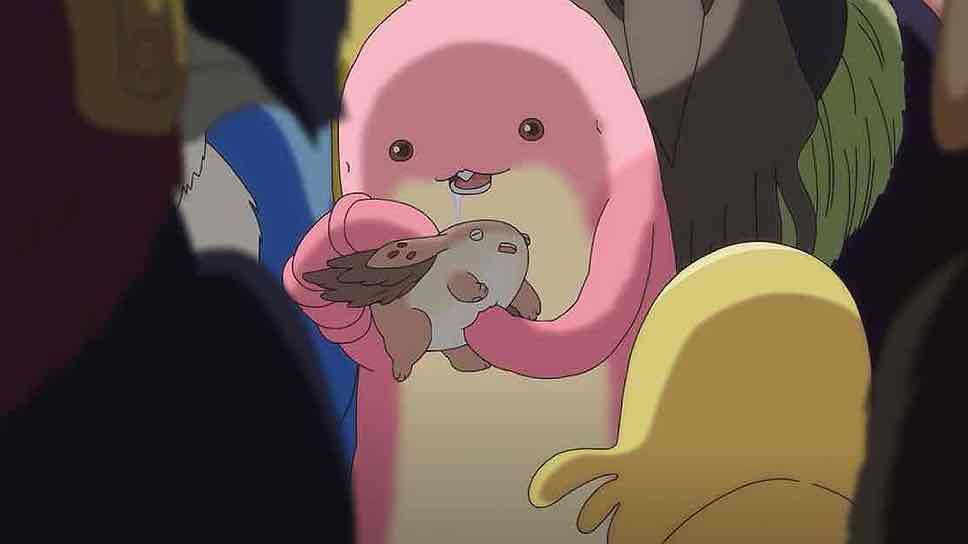
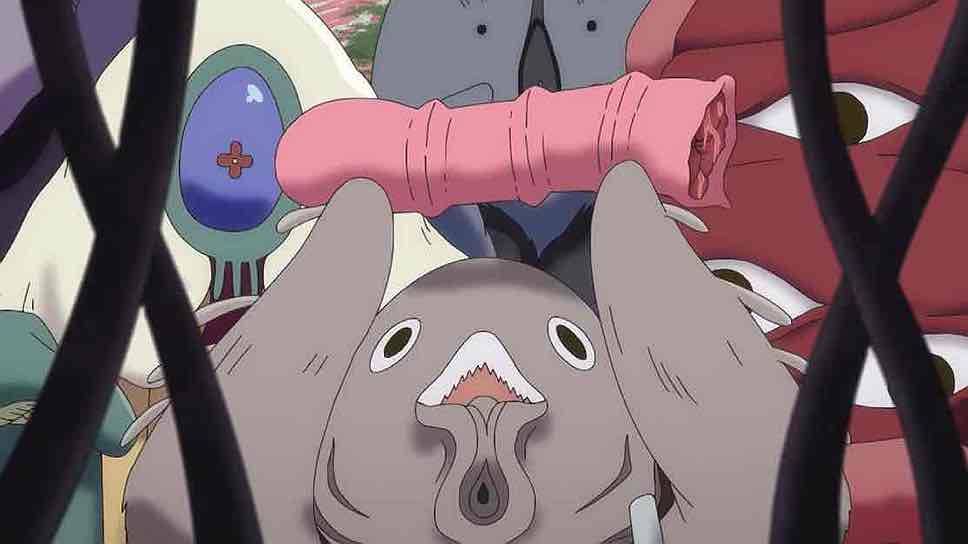
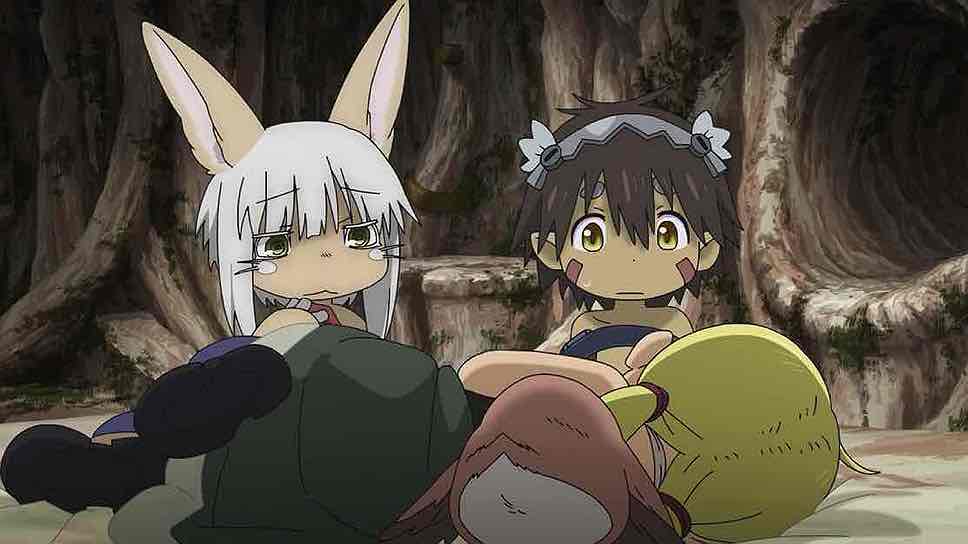
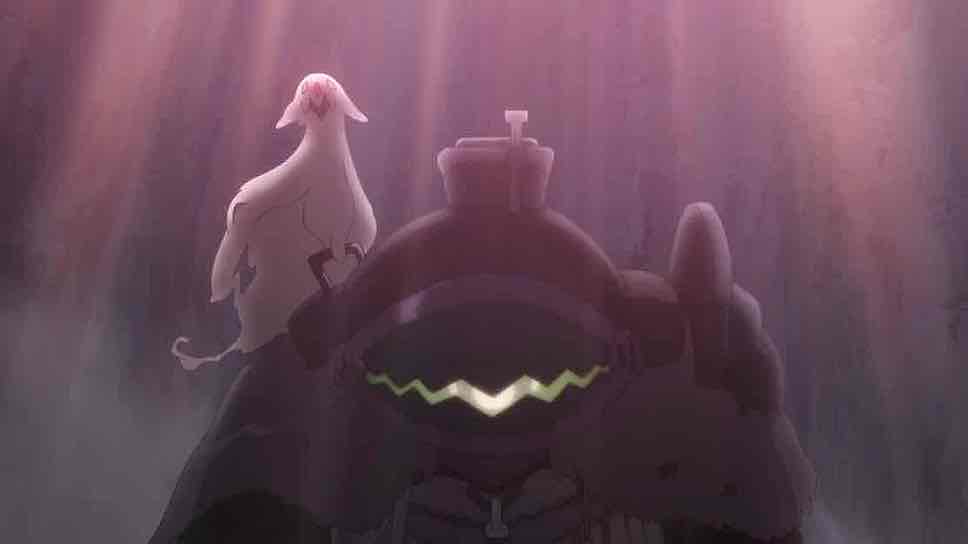
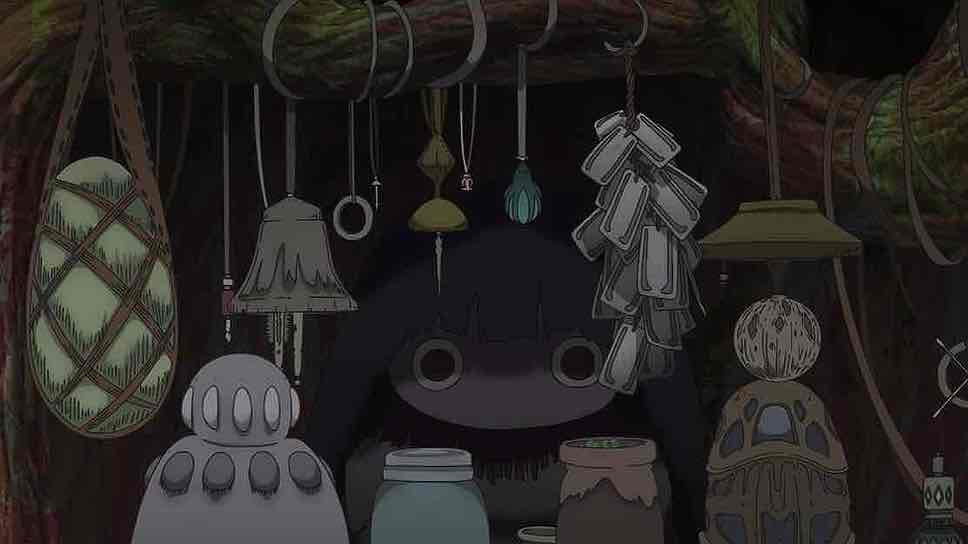
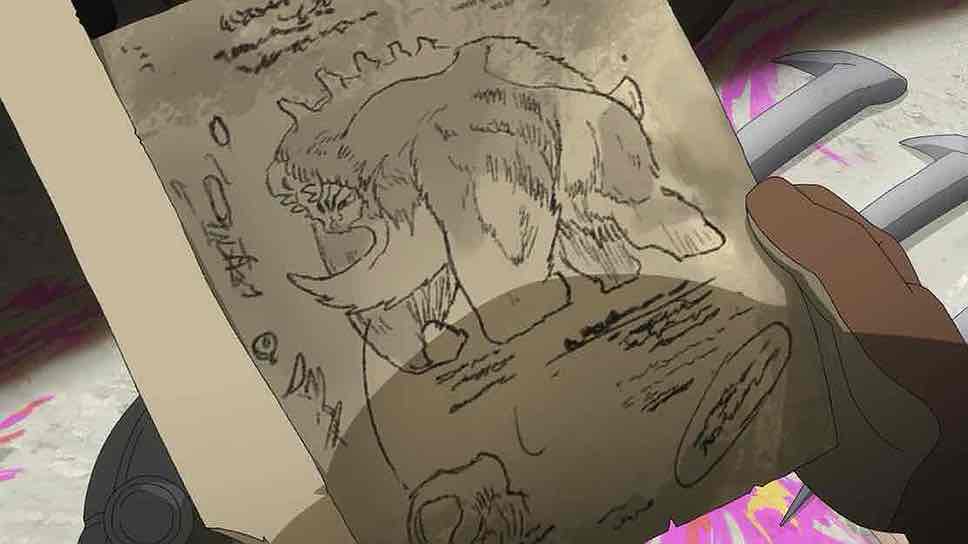

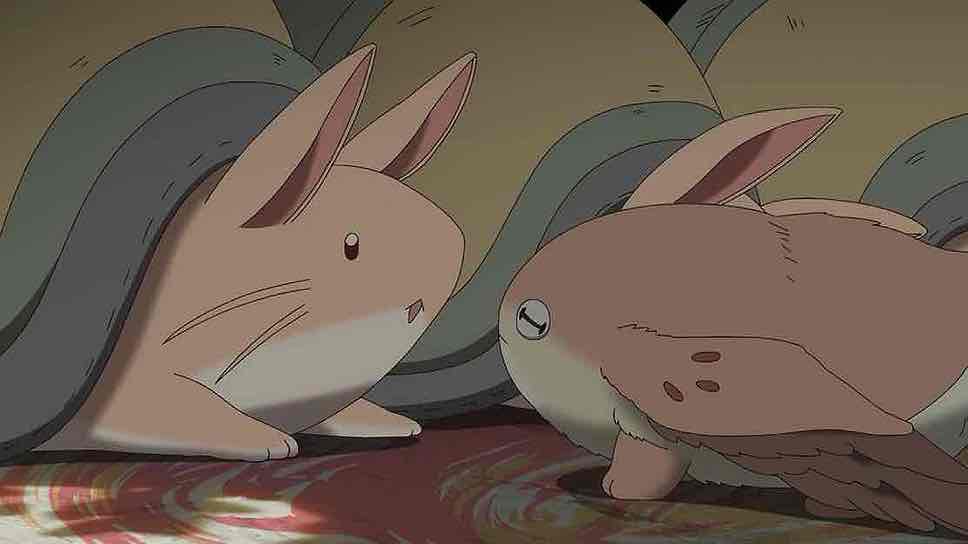
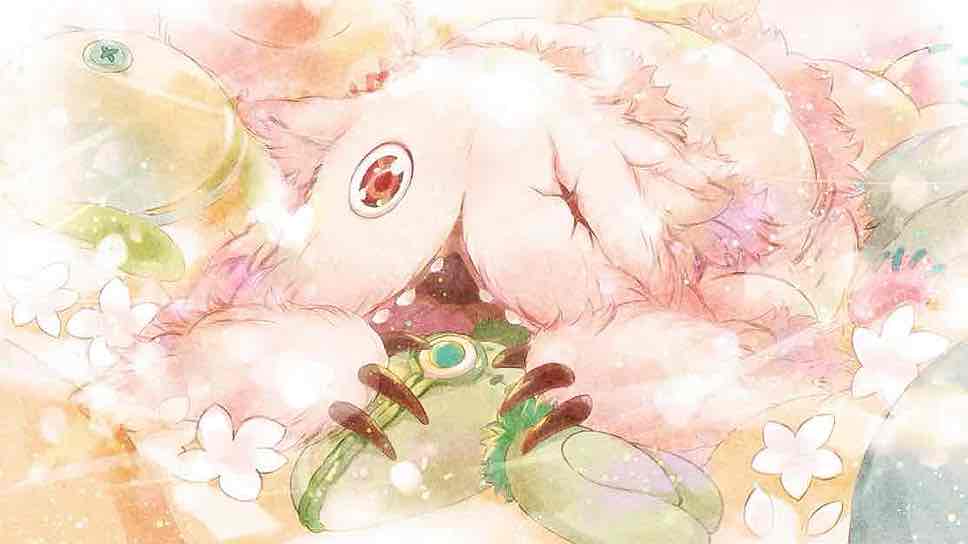
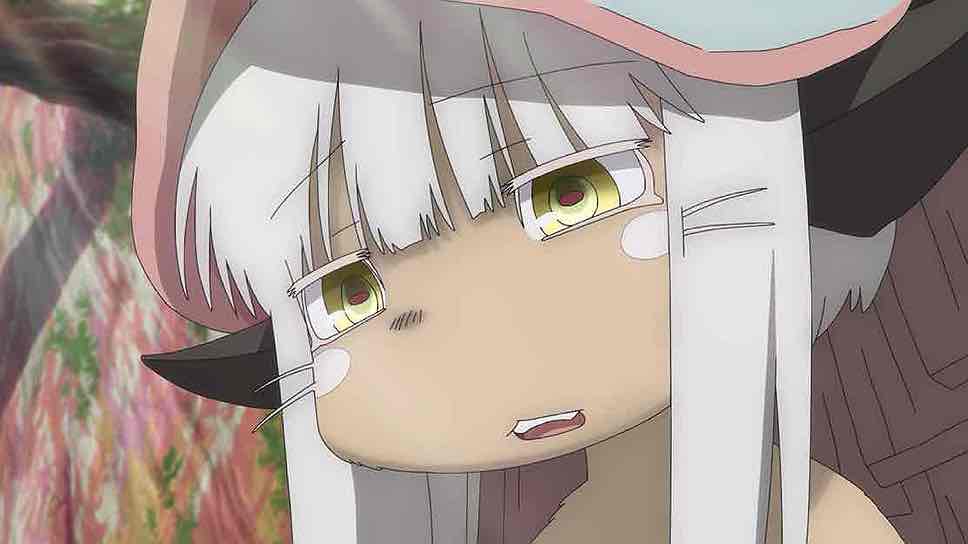
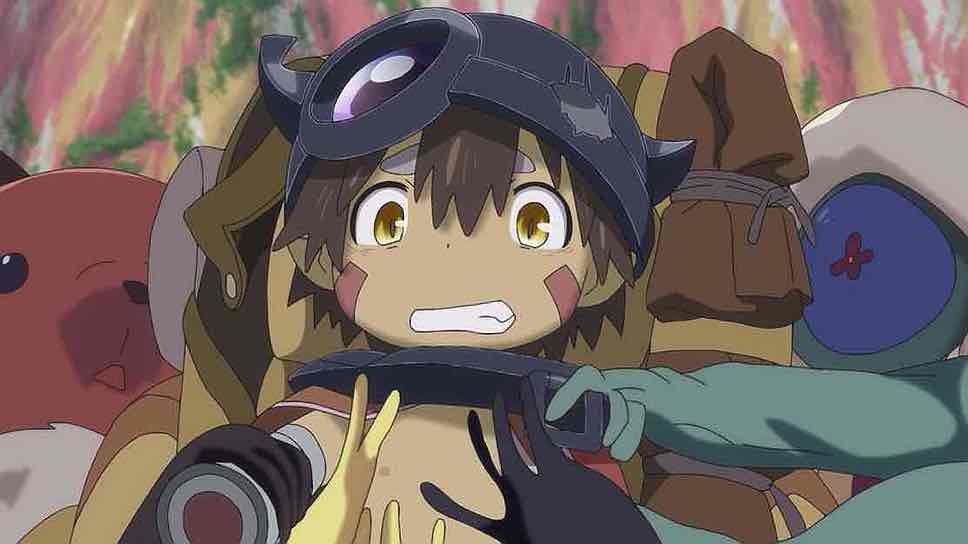
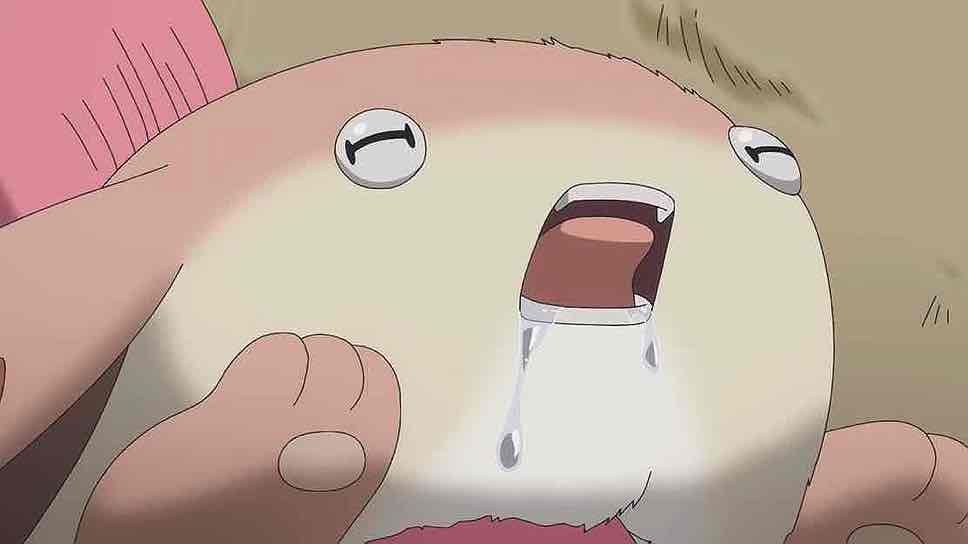
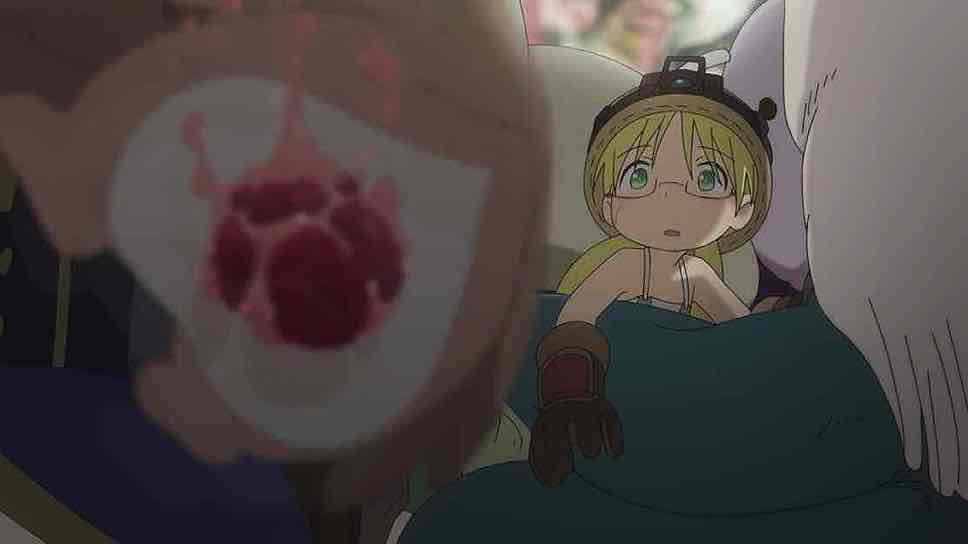
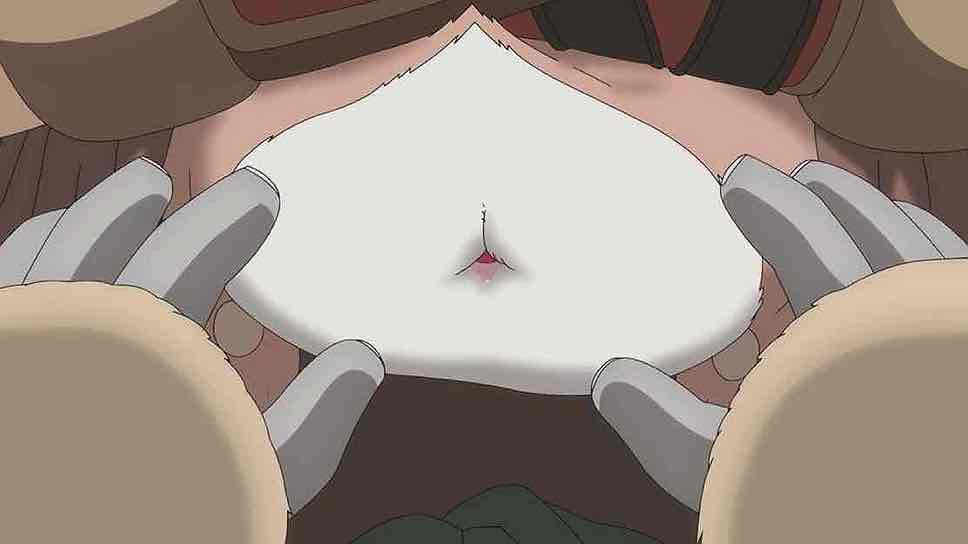
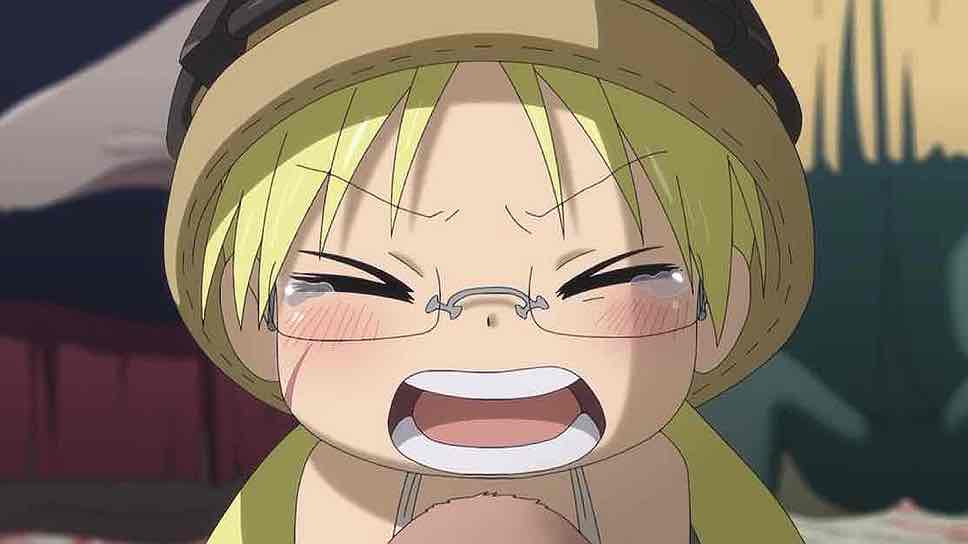
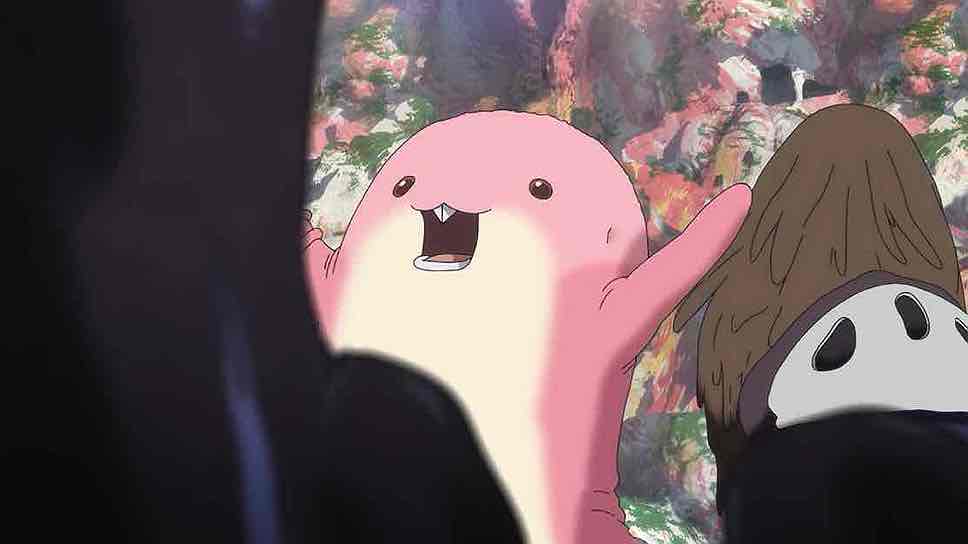
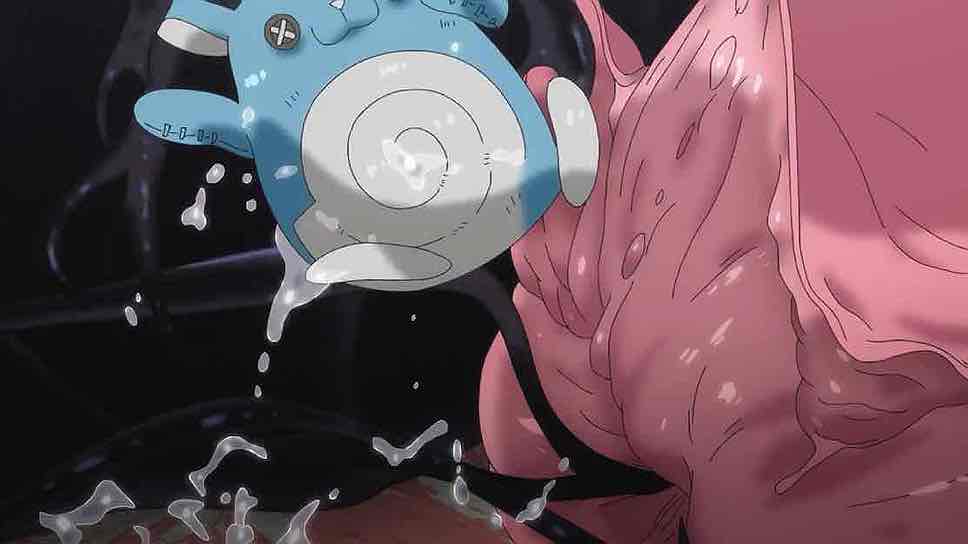
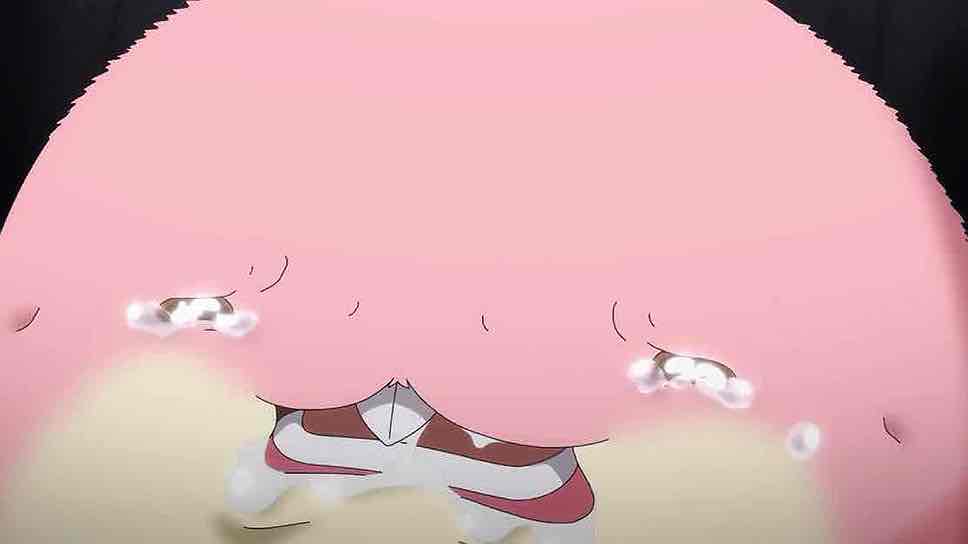
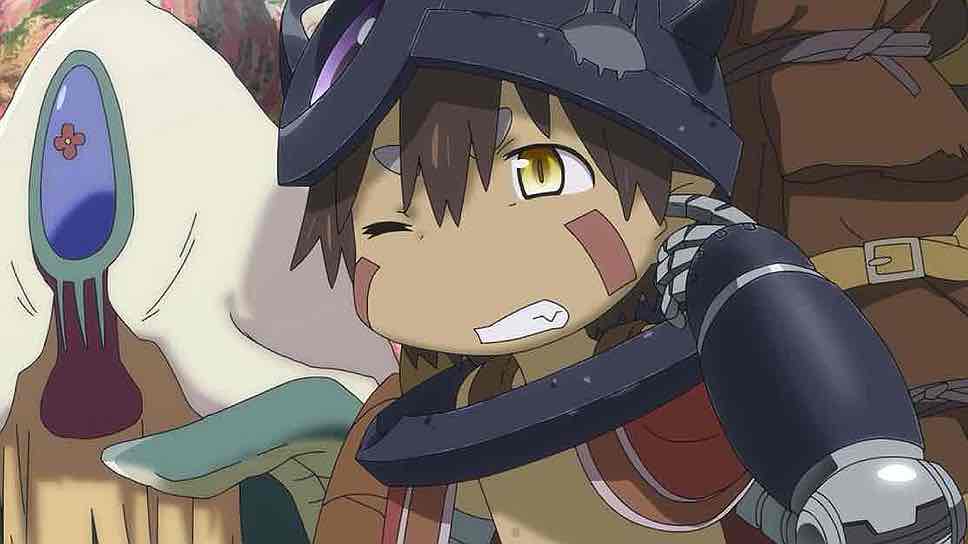
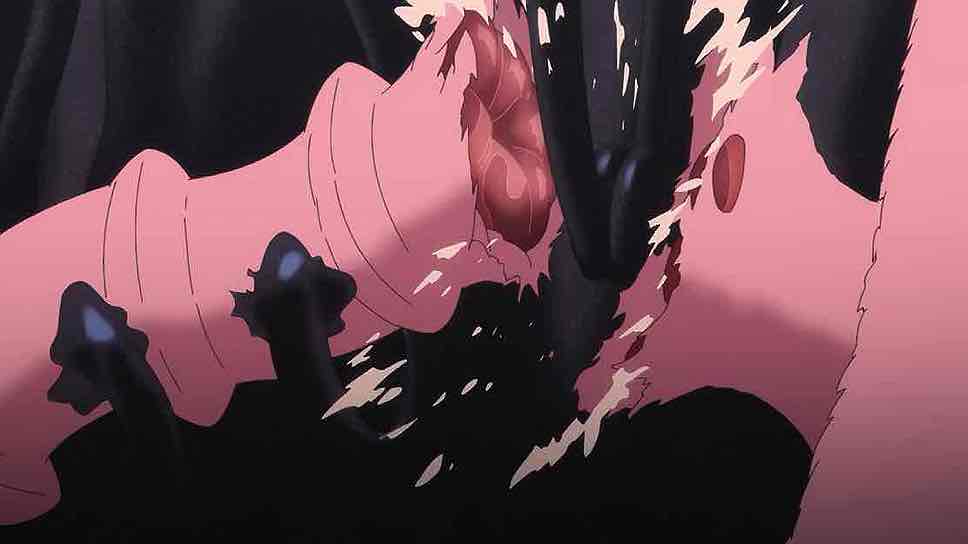
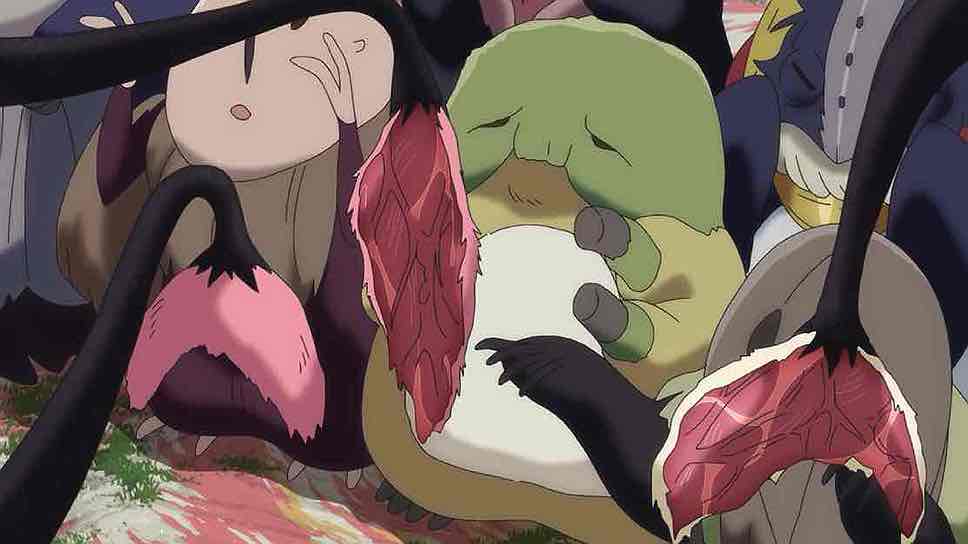
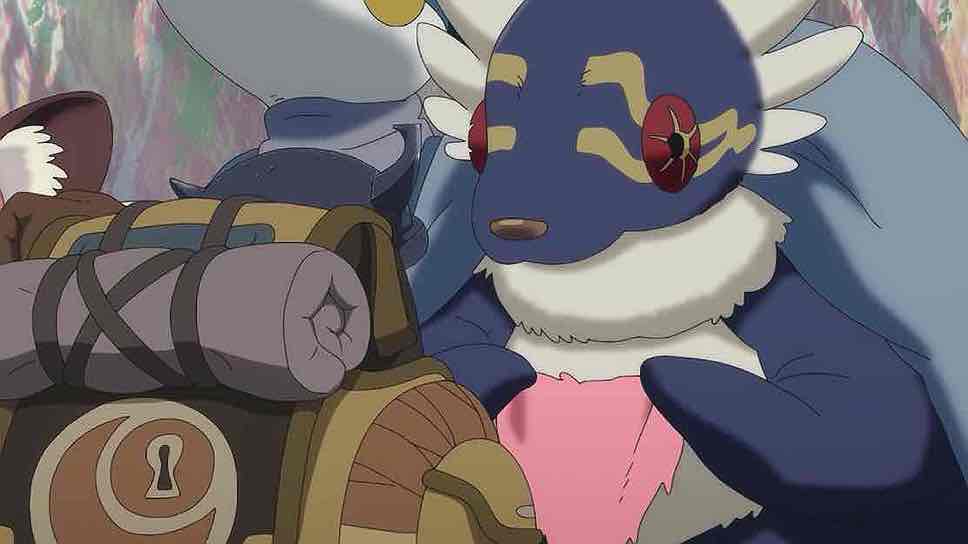
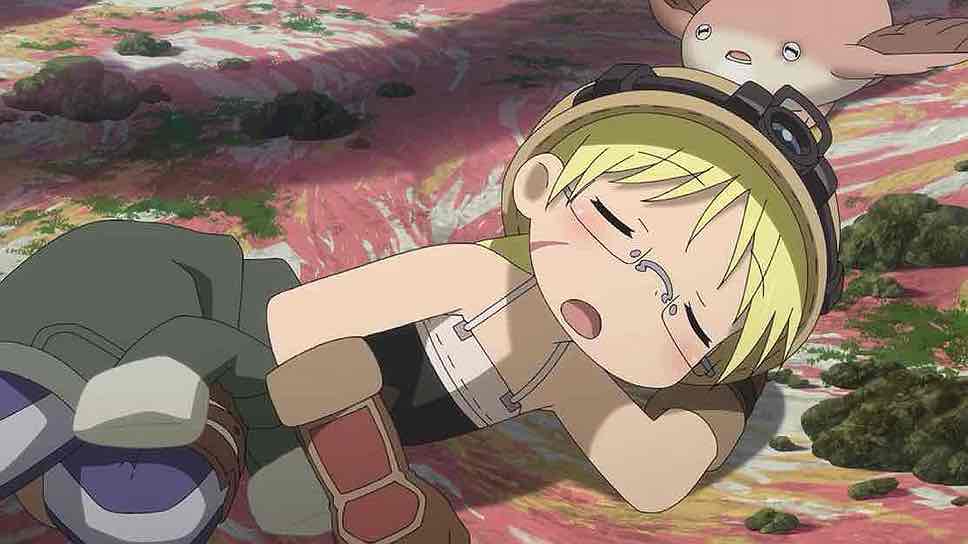
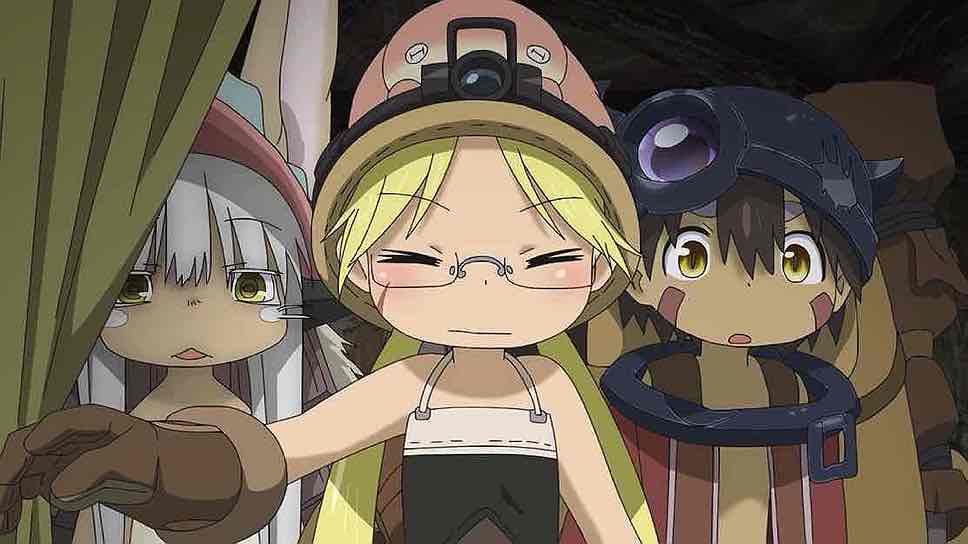
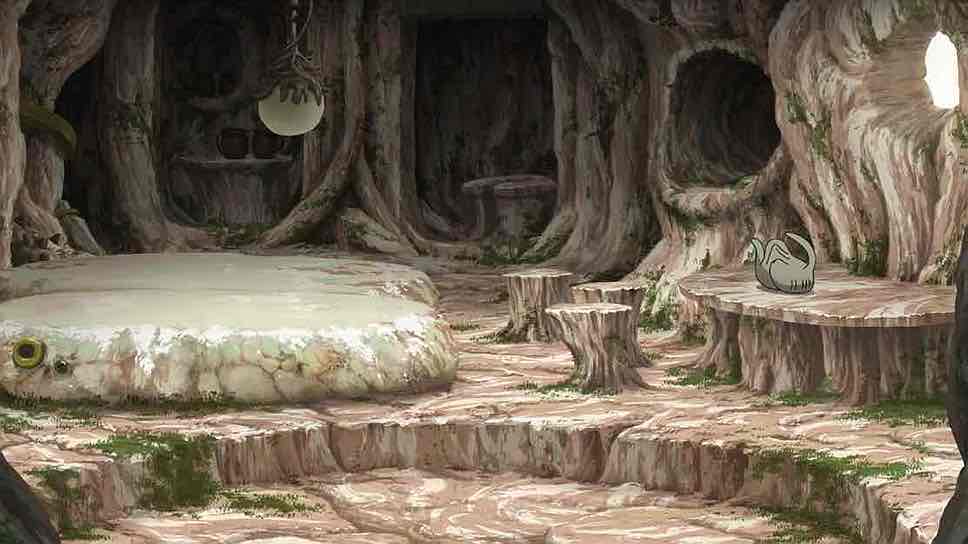
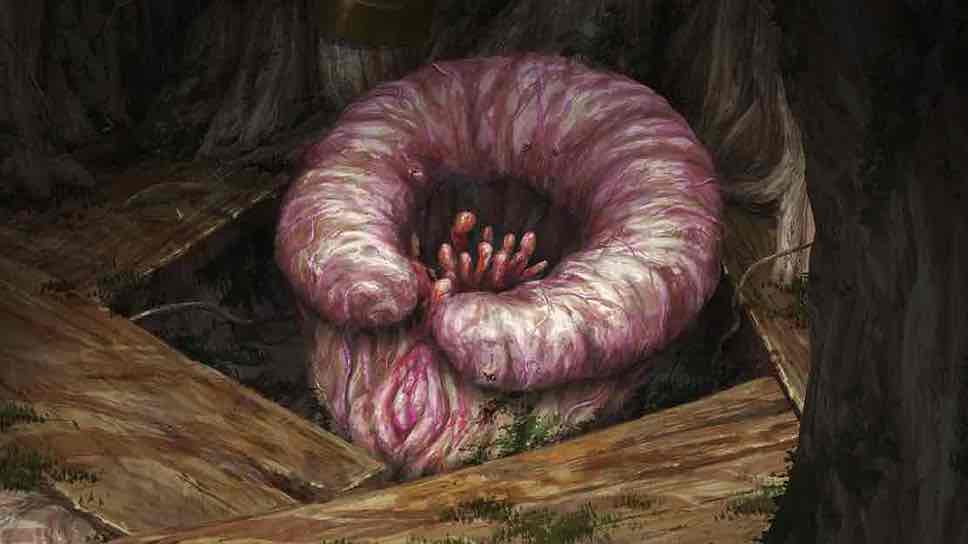
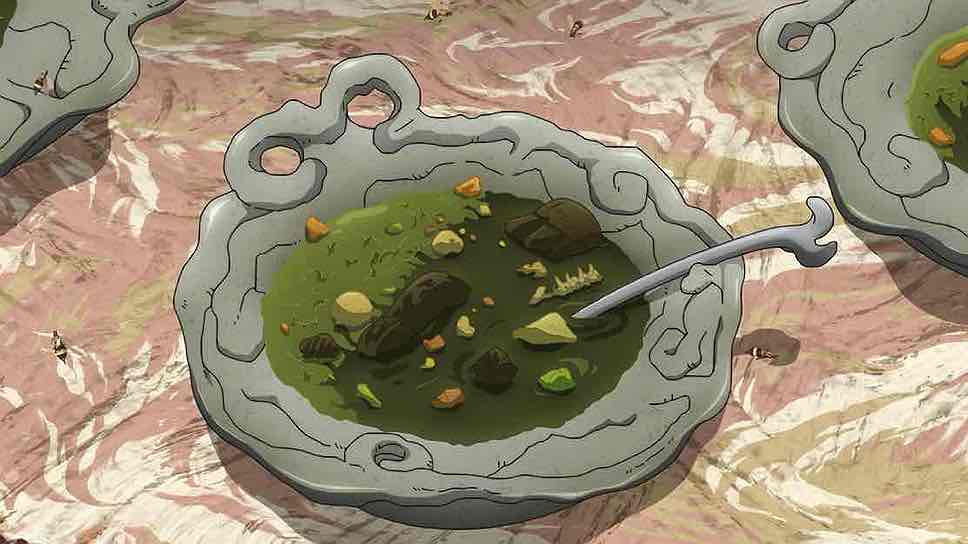
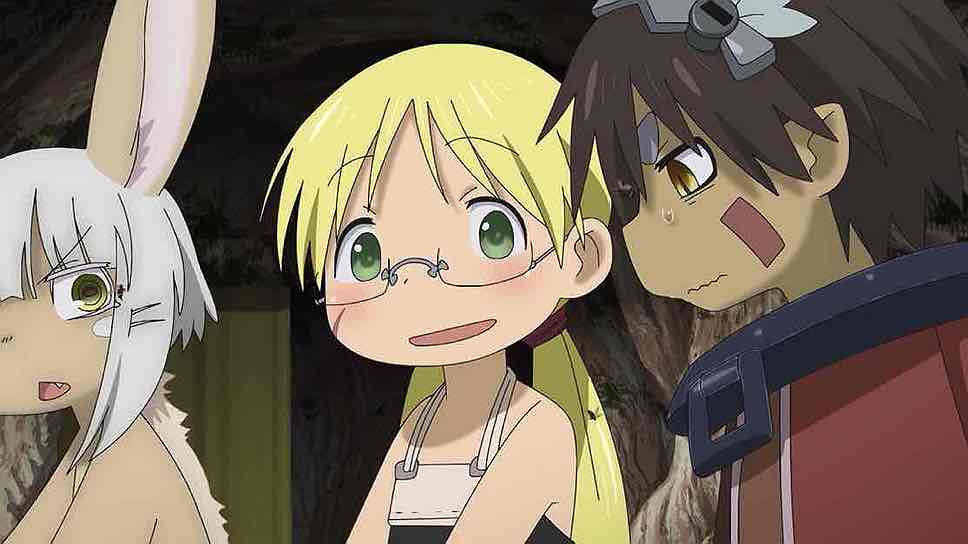
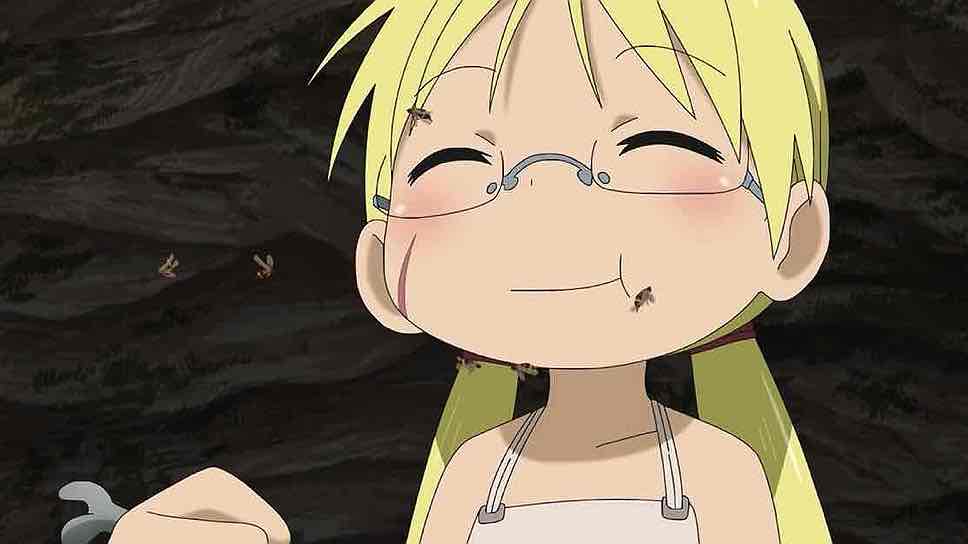
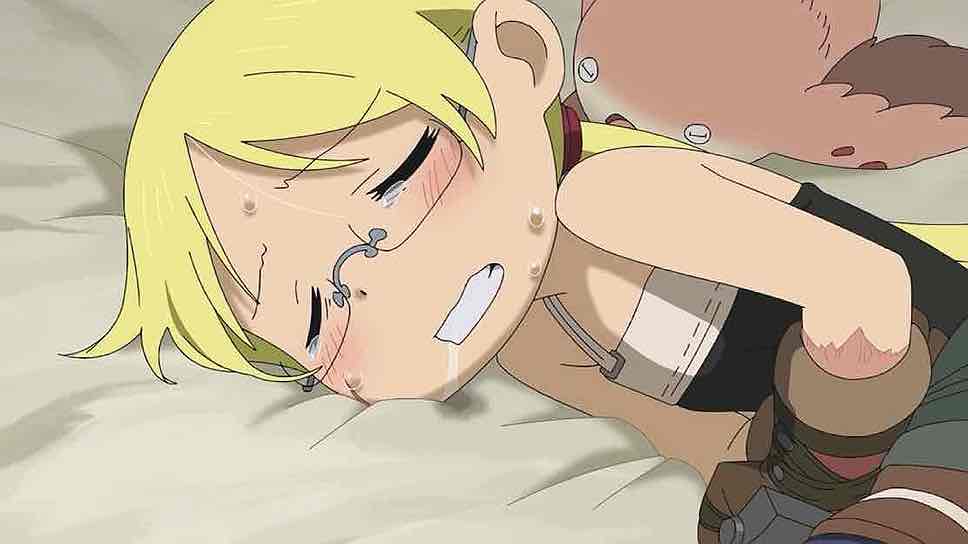
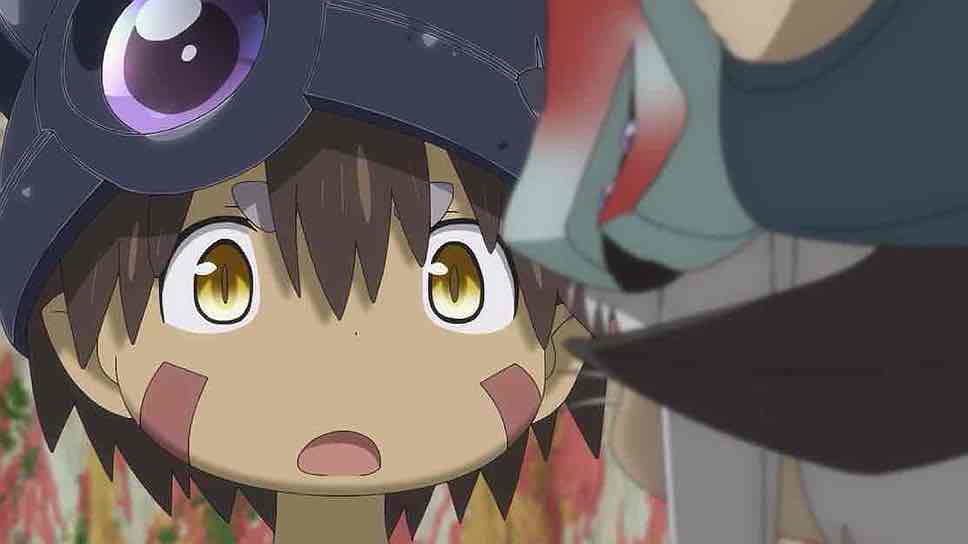
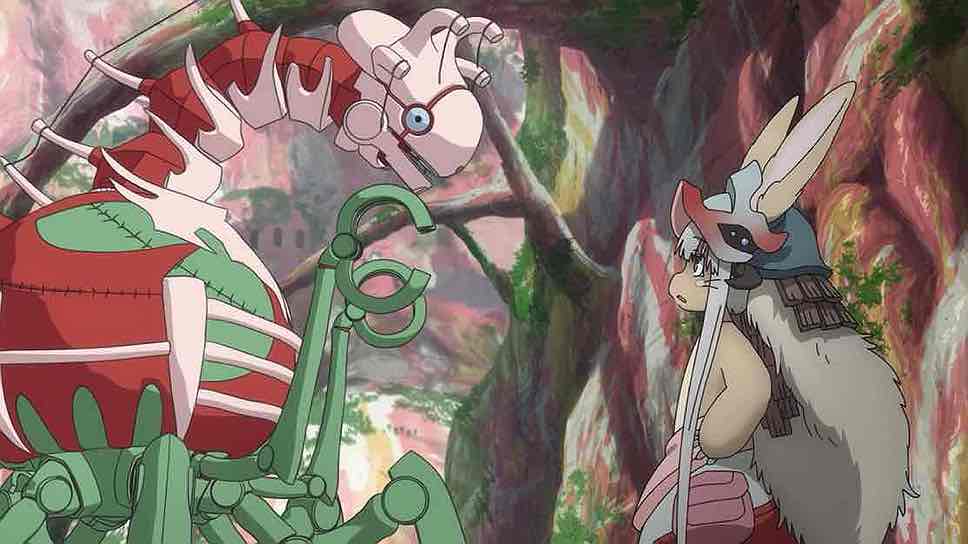
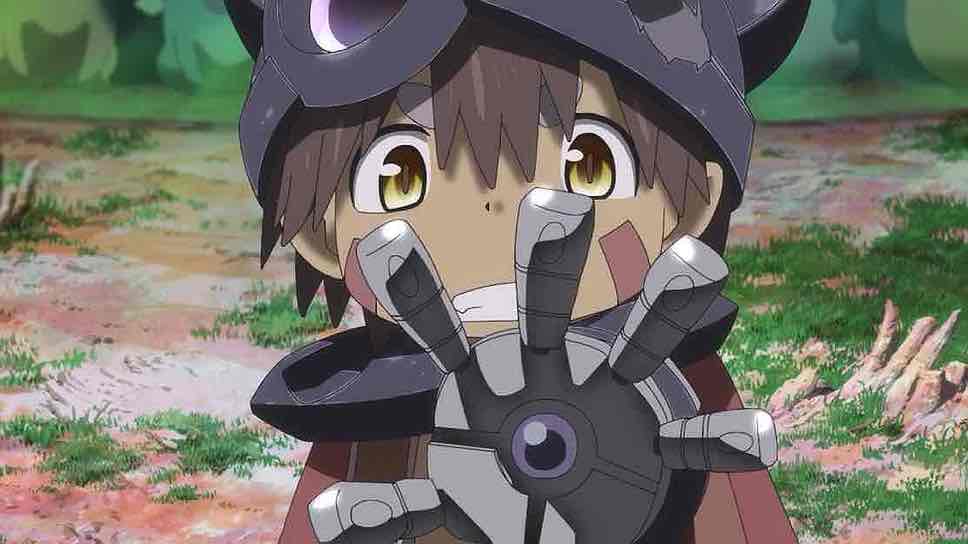
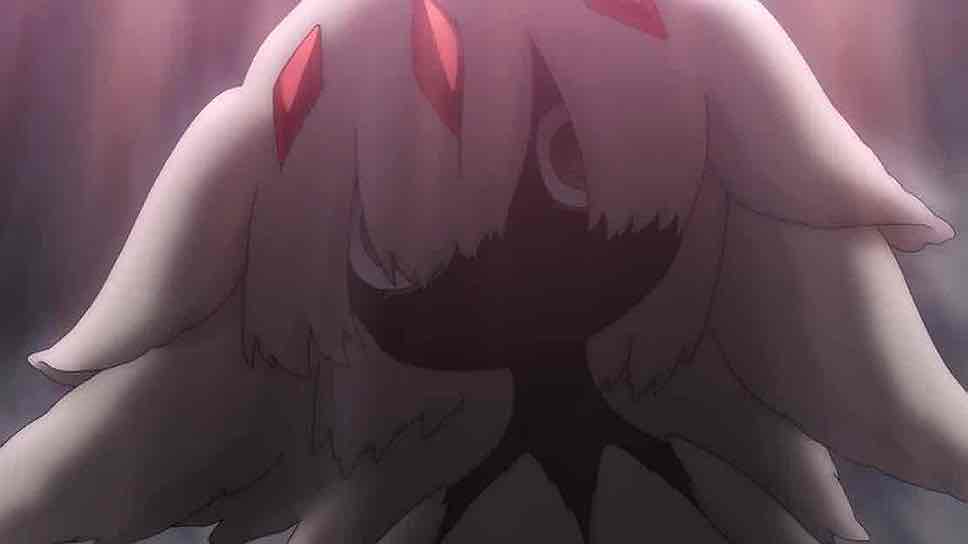
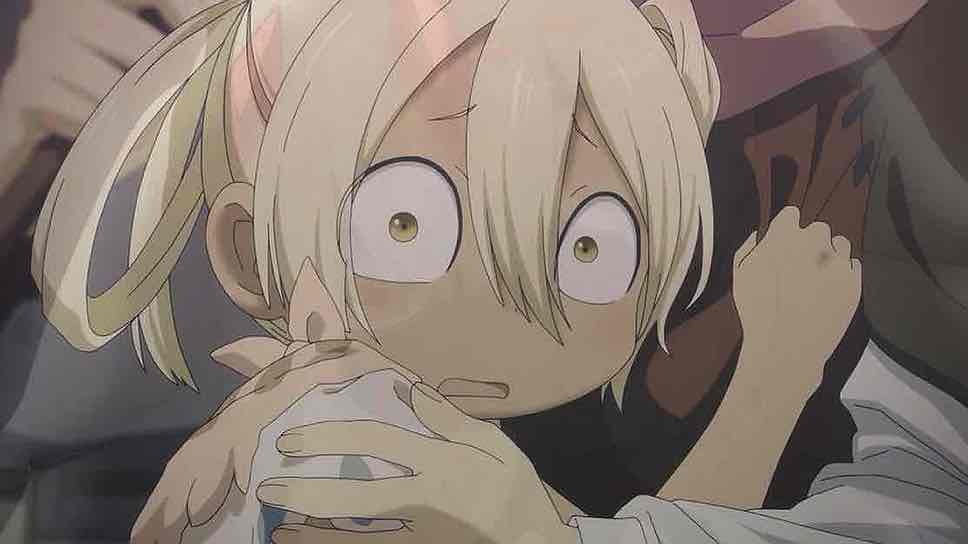
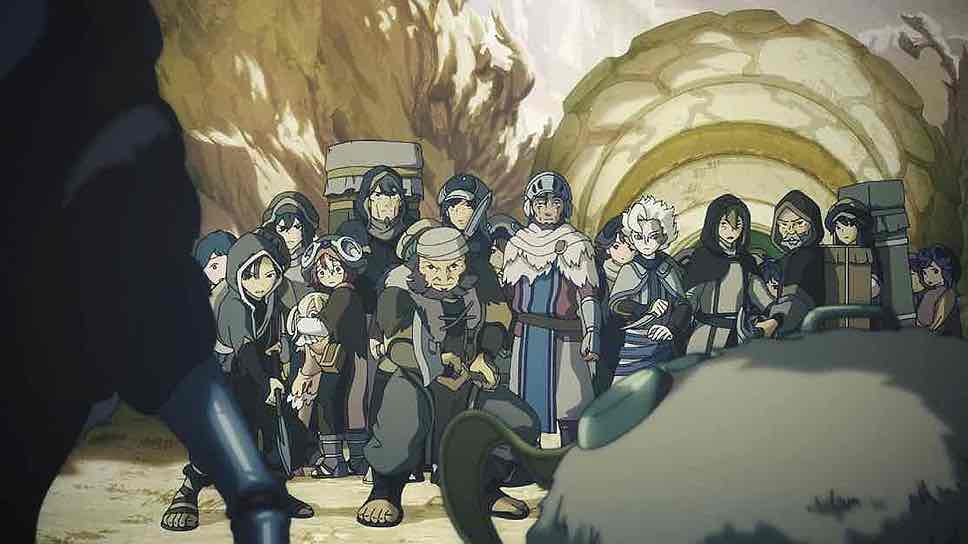
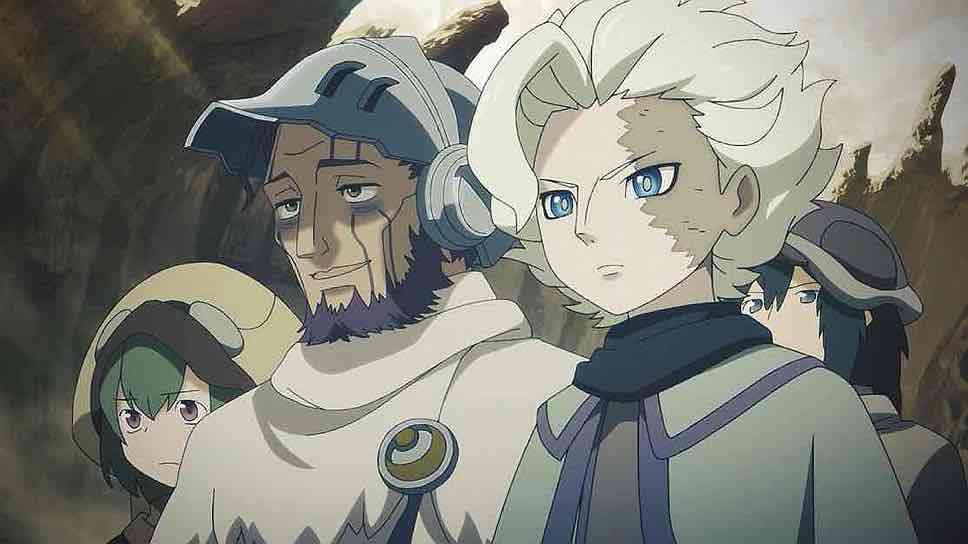
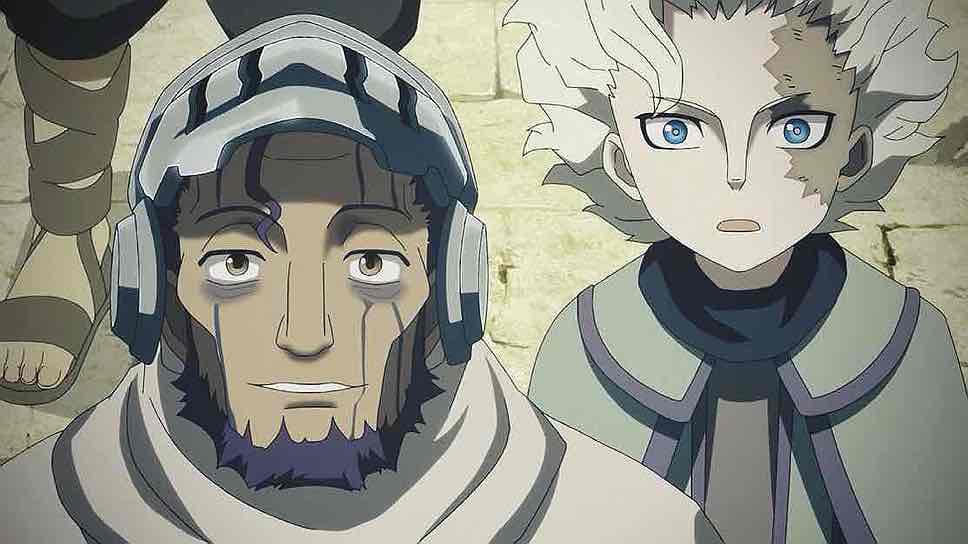
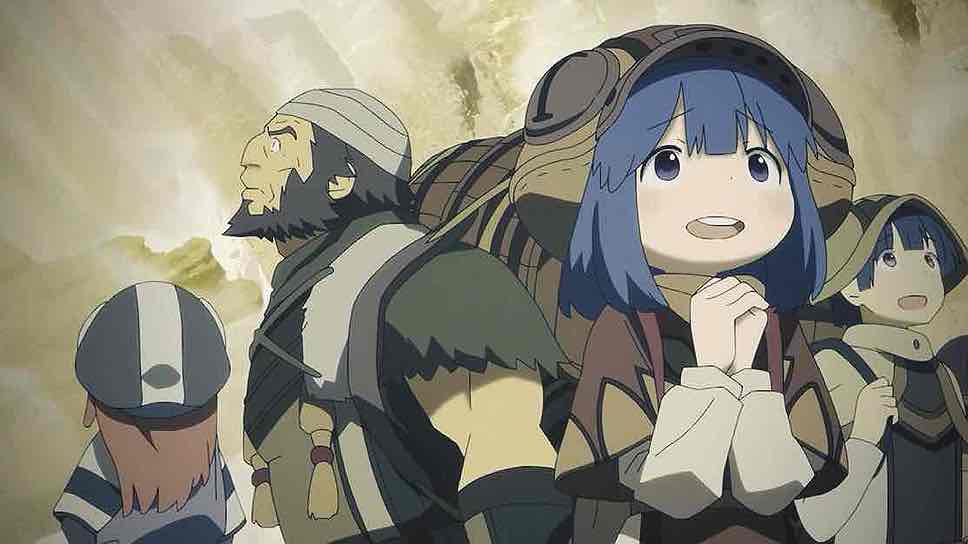
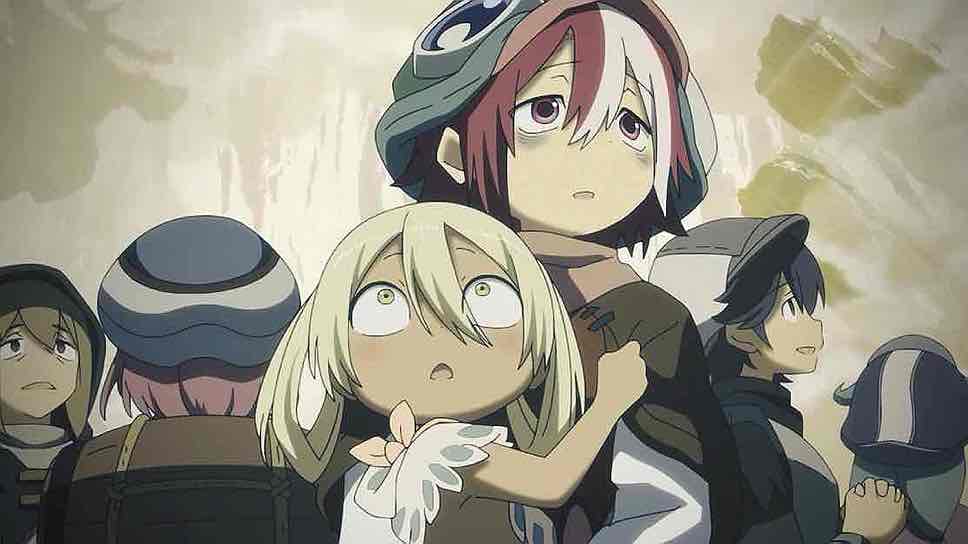
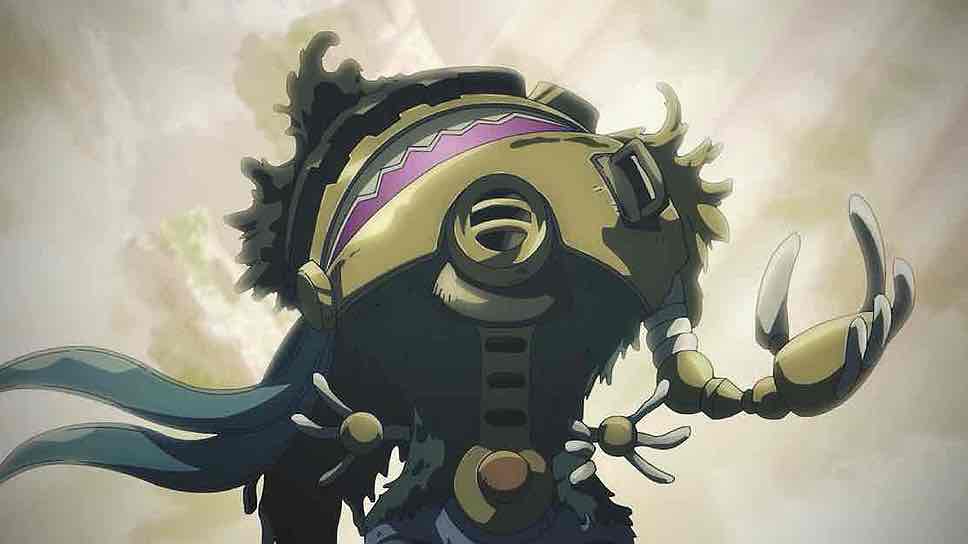
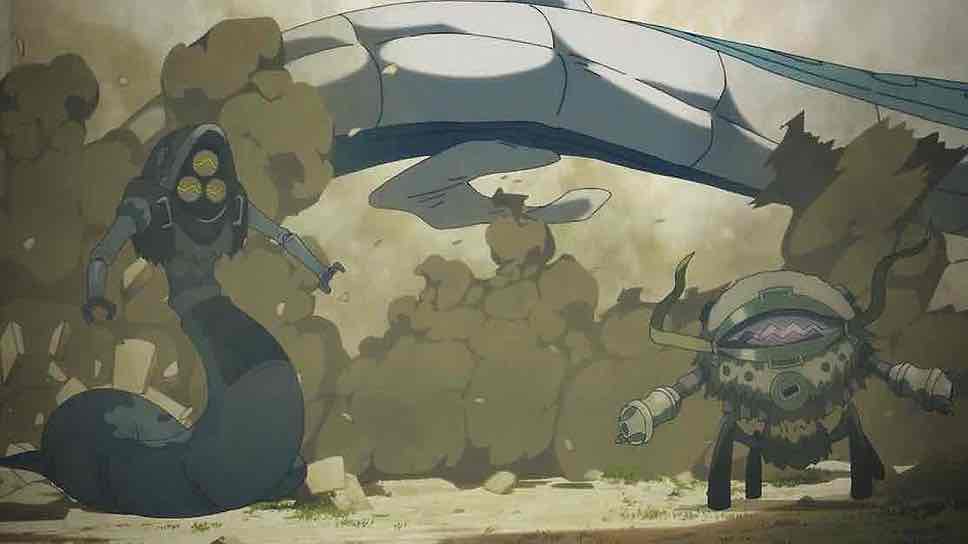
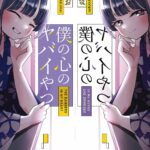

Scampi
July 21, 2022 at 10:55 pmThe balancing is probably this episode’s most important part, but I do wonder why they couldn’t have chosen a more ominous music to accompany it. Especially when the creature screams and the music swells, but it’s just jarring because it’s like they’re showing a grand landscape from abyss instead of a horrible value strip down.
Rasu
July 22, 2022 at 4:35 amI didn’t get the Faputa name as you did, maybe because in my language the last two syllabes are more troublesome, so I don’t mind them ever since Gulliver’s travels. But it’s good you’re paying attention to names because there are some names that should ring more bells than the appearences theirselves.
Personally, I really don’t like her anyway (Faputa), and can sense not only the author likes it, but maybe she was the reason why he wanted to kill Nanachi in his original idea. I kind of prefer Irumyuui (the village girl), but Veko is the one I like the most. The interaction between those two and Belafu is kinda lovely in a way.
Reminder deleted
Guardian Enzo
July 22, 2022 at 9:00 amThat seemed way too specific to me.